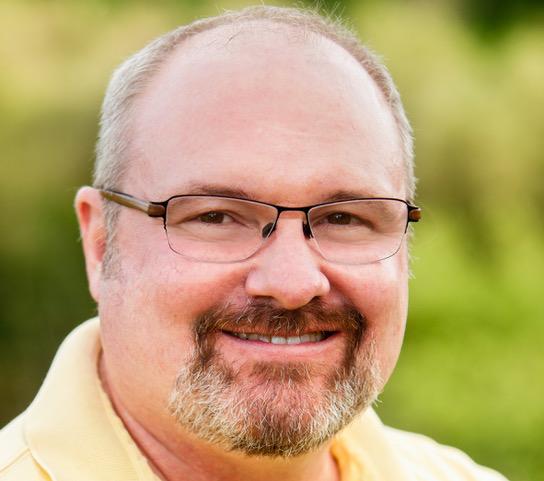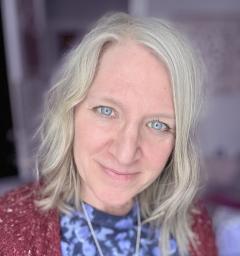In August 2024, Bill Gayner became the Vice President of the International Focusing Institute Board. It was a pleasure to talk with Bill. For me, meaningful conversations are those in which both people are checking in with themselves as they speak, and Bill continued to do that throughout our conversation. As a result, his stories and understanding of life are rich with images and metaphor.
Bill’s curiosity has led him on a quest for knowledge and growth from an early age. Our conversation began with his early philosophical experiences and carries through to his involvement with Focusing. I’m delighted to share our discussion below.
Natalie: In looking back at your personal history with Buddhist study and meditation, what is a 20-year-old kid looking for in studying existentialism and Buddhism, and then seeking a Buddhist teacher and a retreat center to live? What called you to seek out this unconventional path?
Bill: I was a bookworm because I loved the worlds the authors created; it really saved my soul.
I’d gone to university and gotten into philosophy and English. I thought I was signing up to learn wisdom, but I found myself very "up in my head," in a very nihilistic, bleak place. It's a kind of state where I’m walking along and everything felt dead - so separated from everyone, and kind of like, we're ships sailing in the dark, sending signals to each other but there’s this gap. And how are we connected?
“AND THEN WHEN I STEPPED OUT OF THE ART GALLERY, THE WHOLE WORLD, ALL THE COLORS, HAD TURNED ON AGAIN.”
Natalie: You had that deep kind of awarenesses as a young person?
Bill: I was deeply into existentialism. In those years, it was suffering that was driving [my search].
I then dropped out of university and was going to art galleries and was astonished. Two things I was astonished to discover: I could just notice how I felt about the paintings and sculptures I was looking at, and then, if I went and read a bit about the artist's intention, it was the same as what I had experienced and that blew my mind. There was something more than just arbitrary projection onto reality, there's something shared, something universal.
And then when I stepped out of the art gallery, the whole world, all the colors, had turned on again. I was back in the world. Then I asked myself, how do I turn the world back on without spending 2 hours in an art gallery…?
It was like opening to the paintings and discovering the artist's intention played through my body. I realized, the world is like that.
The world is something we can open to, and that became a very visual exploration. Then I realized I had other senses and started listening, and I realized my mind was very noisy so I thought I would try some meditation. It was a lot of little steps along the way, but that led me into an exploration and to living at a retreat center and studying Buddhism.
Natalie: How did Focusing find you? And what was it about Focusing?
Bill: Focusing found me in the eighties in Buddhist circles. My Buddhist teacher introduced it to us as a kind of adjunct meditative practice, and I had a little taste of Focusing partnering in a retreat. It really inspired me, that felt shift into deeper coherence. I wondered if this wasn't something really central, more central than even it was being presented to me as a useful practice.
It’s like if you're trying to be with suffering - Ann Weiser Cornell talks about how to say hello, turn and say hello to suffering that doesn't want to let go, and resonate with it. And if you do, compassion emerges, and I think that compassion orients us to really taking in. It feels so workable now, to take in the suffering in a way that creates ripe conditions for a creative occurrence to happen. We're in a felt shift into deeper coherence. And we're in a new world. And we're making sense of things in a really coherent way.
That compassion emerging in the midst of the suffering is sacred.
“IT’S THE SENSE I HAVE OF OPENING INTO THE BODY AND THE FEELING THAT THE EARTH EMBRACES US AND SUPPORTS US, AND THEN THERE’S AN INSPIRATION THAT EMERGES – A LIGHT THAT SAYS, 'HEY, WHY DON’T YOU TRY THAT,' AND BEING WILLING TO SAY YES TO THAT, TO FORWARD INTO THAT, AND IT TAKES US BEYOND WHAT WE THINK WE CAN DO.”
Natalie: One thing that stood out reading about your professional history was that you're a leader. You created, taught and lead Touching the Earth practice. You founded the community for Touching the Earth. You developed Emotion-Focused Mindfulness Therapy (EFMT), and you led a randomized control trial, just to name a few things. Were you then not surprised to find yourself taking another leadership position by accepting a seat on the board with The Focusing Institute?
Bill: I was invited to join the board, and I suppose it's being willing to show up and say yes, and to go for it. There were moments like that in my career so I guess that builds. Maybe people feel that willingness.
In the Buddha’s life, he sits down in meditation that leads to his awakening. And this evil demon king sends all these doubts, and they're shouting at him, these demons, “Who do you think you are?!” And Siddhartha leans forward and he touches the earth, the earth witnesses him and that leads into his meditation. It’s the sense I have of opening into the body and the feeling that the earth embraces us and supports us, and then there's an inspiration that emerges - a light that says, “Hey, why don't you try that,” and being willing to say yes to that, to step forward into that, and it takes us beyond what we think we can do.
Leader is not the first word that comes to mind for me, but I can see how it fits. But you are quite right that I am a kind of leader. I am willing to break new ground publicly in following my felt sense of what is needed, to hold space for others, to try to do that in a compassionate, congruent and empathic way, and, as you pointed out, to found and nurture a community of mindfulness practice.
Part of my interest in leadership is also exploring more participatory, vulnerable forms of leadership that I think the Focusing community has long exemplified. For example, in crossing Changes groups with our Emotion-Focused Mindfulness practice to create the Touching the Earth community approach. I was inspired by how facilitators introduce groups to Changes group practice: the group leader demonstrates how to do it by sharing their own Focusing process with a Focusing partner, so newcomers can gain a felt sense of it live.
“THERE IS THE PLAYFULNESS WHICH IS PART OF THE FOCUSING ATTITUDE, LETTING GO OF OVER-CONTROL, OPENING TO THE FELT SENSE AND BEING WILLING TO BE CHANGED BY THAT, AND CARRYING THAT FORWARD IN LIFE.”
Natalie: Tell me about your experiences being on the TIFI board.
Bill: TIFI is happening on a whole different scale. It's a much bigger organization than Touching the Earth. It's very humbling to be on the TIFI board with its deep history.
What I feel being on the board, the word that's coming to me is "cherishing." That’s our job, to cherish the processes of TIFI and all the different streams and to be really true to Eugene Gendlin’s legacy around Focusing and Focusing-Oriented Therapy and Thinking at the Edge.
I am really learning and getting a richer sense for all the different parts of the International Focusing Institute, and the different countries and the complexity of that.
The board oversees the whole of it, the governance. It’s lovely to be with a group of people where we are focused on the process. But the process includes the felt sense like the process of the meeting.
There’s a real integrity in terms of the mission and the goals of the organization. And then there's an empowerment that comes as you entrain with the team, feeling your way into the issues that we're discussing and finding our way forward together.
This is a group where people come out to play - serious play - showing up in an embodied way.
Natalie: And things still get done.
Bill: There is the playfulness which is part of the Focusing attitude, letting go of over-control, opening to the felt sense and being willing to be changed by that, and carrying that forward in life. People are not coming to the board meeting as talking heads, shut off from their feelings. They are really showing up. It enables the board to work in a focused, effective way.
Being on the board is kind of like an invitation to come out into the world, and it can feel a bit scary sometimes to accept these invitations, but if you go through a process and you feel called to do that, then you're feeling supported from the ground and inspired by the light, to step into that.
I aspire to serve the Focusing community and the different streams, and to really come to fully appreciate all the wisdom that's embodied in this rich, diverse community as well as the voices that aren't heard, that we need to hear better and to serve that. And to serve Gendlin’s legacy.
Natalie: Say more about serving Gendlin’s legacy.
Bill: Focusing is a technique that you can use in therapy or in self-help. It is a powerful technique, life-transforming, wonderful, something to really cultivate.
But it's an application of Gendlin’s philosophy of the implicit. Going into the philosophy really helps you explore and discover: what am I cultivating in Focusing, meditation, and life, and be able to articulate it for yourself, what works for you. To ask yourself, what have I fallen in love with? What I have fallen in love with is opening into the implicit, into the felt sense, and letting go of all my assumptions, and discovering what emerges.
And then, feeling moved by that and discovering what theories are alive in that, and so to have intellectual support to do that, to have philosophical support, it helps you integrate it more thoroughly into your life, as well as in all the little micro choices. You feel more empowered to follow your heart.
The theories provide tremendous deep empowerment for really exploring and caring for how transformative this practice is; how it's going to change the way you experience yourself and your world, and the way you experience life is going to change. Your life world is going to transform.
Natalie: The colors will turn on.
Bill: The colors will turn on.
Natalie Fisher is a writer, a mystic and a psychotherapist whose practice includes soul psychology and deep inner listening.
https://www.facebook.com/deepinnerlistening


